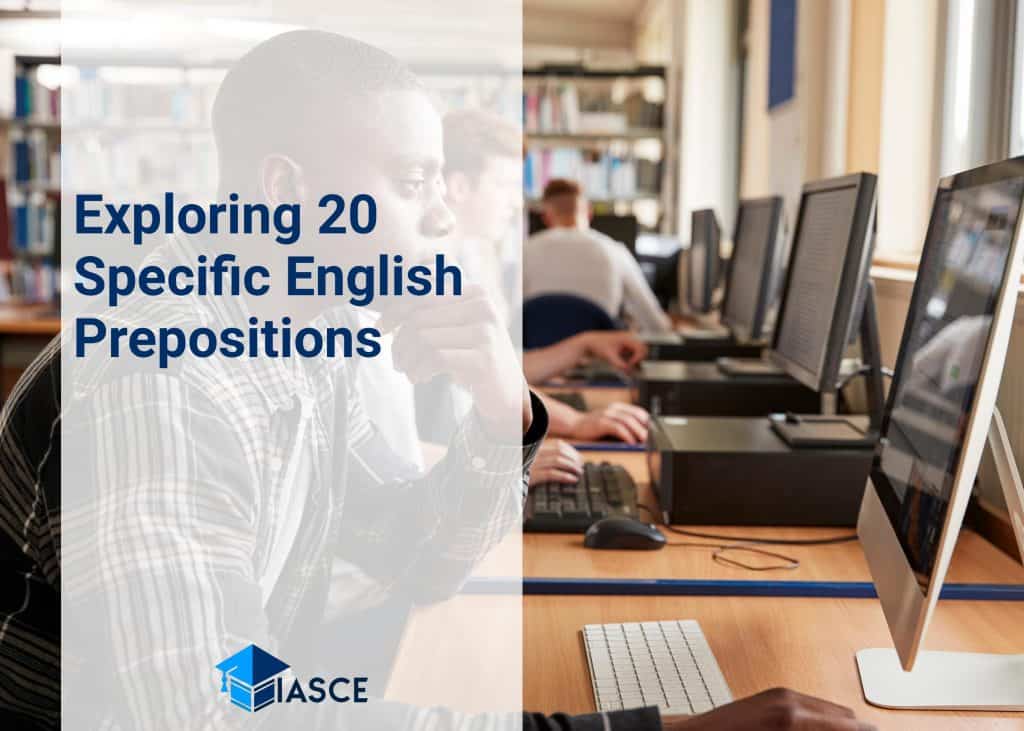Ever wondered how prepositions can alter the meaning of a sentence in English? Let’s dive into 20 intriguing prepositions that pair uniquely with specific words. You’ll soon discover, it’s not just about ‘on’, ‘in’ or ‘at’.
Prepositions are small but potent; they bring clarity and specificity to our sentences. If you’ve ever struggled with phrases like “dream of” versus “dream about”, you’re not alone! This article aims to demystify these deceptively simple words.
I’ll be your guide on this linguistic journey, exploring how each combination adds a distinctive twist to the phrase. So buckle up for an interesting ride through the world of prepositions!
Understanding Prepositions in English
It’s a common misconception that prepositions are small, insignificant words. Nothing could be further from the truth! In fact, they’re essential to the structure of many sentences in English.
Let’s break it down. The term “preposition” comes from Latin. It means “placed before”. So, these are words which are typically placed before a noun or pronoun to express its relation to another part of the sentence. They can indicate location, time, direction, cause and more.
Take for instance: on, in, at, from, and with. These tiny words play huge roles in our daily conversations and writings.
Understanding how to use them correctly can make a significant difference in our communication skills. There’s no one-size-fits-all rule when it comes to using prepositions – context is key!
Consider these examples:
- I live in New York.
- She arrived at 5 p.m.
- He is good at soccer.
- We learned this from her.
Each preposition above gives us crucial information about the circumstance of other words in the sentence.
With over 100 prepositions in English, it’s easy to feel overwhelmed. But don’t fret! By focusing on those most commonly used while reading, writing and speaking, you’ll soon get the hang of it.
Remember – practice makes perfect! As you continue learning about specific word-preposition combinations (like ‘depend on’, ‘interested in’), your confidence will grow.
So let’s dive deeper into some intriguing pairs that’ll boost your mastery over English prepositions!
Exploring 20 Intriguing Prepositions for Specific Words
Diving headfirst into English prepositions can be a fascinating journey. I’ve picked out twenty intriguing prepositions that are often associated with specific words, to give you a clear understanding of their usage and significance.
To start off, “at” is frequently used with time references, such as “I’ll meet you at noon.”
Up next on the list is “by,” which often accompanies passive verbs as in “The cake was eaten by him.”
Then we have “for,” typically seen in expressions of duration like “I’ve lived here for three years.”
Let’s take a look at these examples in a more structured manner:
| Preposition | Example Sentence |
|---|---|
| “At” | “I’ll meet you at noon.” |
| “By” | “The cake was eaten by him.” |
| “For” | “I’ve lived here for three years.” |
Moving on, we find “in,” “on,” and “at”, each serving different purposes when referring to time and location. We say “in March”, “on Friday”, and “at 5 pm”.
Next up is the trio of movement prepositions: “into,” “onto,” and “to.” They’re used when something or someone moves from one place to another. For example, “He went into the store,” or, “She climbed onto the roof.”
Speaking of places, “throughout” denotes that something happens all over a particular place or during every part of an event.
And how about those tricky ones? Like “despite,” “except,” “during,” “without,” “towards,” “off”, and many others? These may seem daunting but fear not! Let’s break them down one-by-one:
- Despite – used to show that something happened or is true even though something else might have prevented it.
- Except – not including; other than.
- During – throughout the course or duration of (a period of time).
- Without – lacking or not having something.
- Towards – in relation to (someone or something).
- Off – moving away and often down from.
Remember: The key to mastering these rather elusive prepositions lies in practice. It’s essential not just to learn their definitions but also understand their usage within sentences. After all, context reigns supreme!
Conclusion: Mastering the Use of These Prepositions
I’ve spent a good deal of time delving into 20 intriguing prepositions and their specific word partners. Now, it’s time to put that knowledge into action. It’s not just about knowing these pairings; it’s also about mastering their use.
So how do you go about doing that? Here are a few strategies to help:
- Practice Makes Perfect: Like any aspect of language learning, practicing using these prepositions in your everyday speech and writing will help cement them in your memory.
- Read Widely: The more exposed you are to different styles and genres of English writing, the better you’ll get at spotting correct preposition usage. So crack open a book or two!
- Use Technology: Language apps can be incredibly helpful for honing your grammar skills. They offer practice exercises and quizzes which can aid in learning and retaining this information.
Remember that language isn’t static – it’s constantly evolving, with new words and expressions being added all the time. That said, getting a solid grip on these basic building blocks will serve you well no matter how the language changes over time.
In my journey through English grammar, I’ve found that understanding the specifics is key – like knowing which preposition pairs with what word under what circumstances. But equally important is gaining an intuitive sense for how English works as a system as a whole.
These 20 pairs we’ve discussed aren’t exhaustive by any means but they give us some handy tools to navigate our way around this complex yet fascinating language landscape. And remember – if in doubt, don’t hesitate to look it up! There’s no shame in wanting to get things right.

